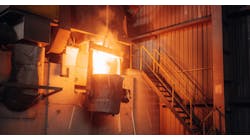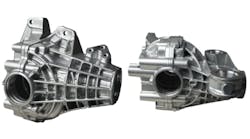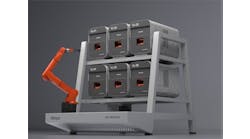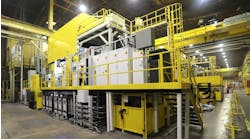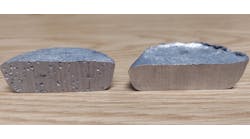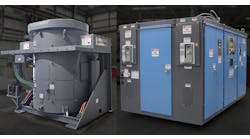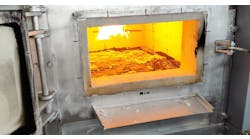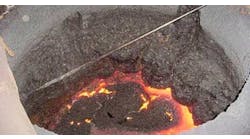Sheffield Forgemasters International Ltd, the British engineering group, reported recently it has retained a 20-year quality certification for civil nuclear castings and forgings. The Quality System Certificate was renewed once the group passed a rigorous conducted audit by the American Society of Mechanical Engineers (ASME) 3800 Code survey.
“This qualification recognizes our quality levels,” stated David Street, Sheffield Forgemasters’ group quality director. “Our role as a Tier One member of the Nuclear Advanced Manufacturing Research Centre (NAMRC), allows us to play a crucial part in establishing quality assurance requirements for businesses aiming to enter the UK civil nuclear supply chain.”
The ASME Code is a comprehensive series of directives for manufacturing parts and systems for civilian nuclear operation, and similar in scope to all other compliance requirements. SFIL noted this is important because its work with civilian nuclear power producers, engineers, and contractors around the world will be strengthened by the recertification. Specifically, it stated that its reputation as a supplier of heavy castings and forgings for nuclear-power projects will continue as a consequence of the achievement.
The manufacturing complex at Sheffield, England, includes electric furnace melting and casting for ingots, foundry and forging operations, as well as and large-dimension machining capabilities.
The 10,000-metric tons/year foundry pours ladles of carbon or stainless steel up 100 metric tons, for products with maximum dimensions of 16X7.6X4.6 meters. Engineering, patternmaking, ultrasonic testing, and heat-treatment of finished products are done on site. It is able to produce castings weighing up to 350 metric tons. Its ASME certification has allowed SFIL to produce 16-metric ton castings for a reactor coolant pump for two new, Westinghouse AP1000 nuclear-power plants in China, and such castings will be included in all future AP1000 plants globally.
Sheffield Forgemasters first gained ASME accreditation as a Nuclear Materials Organisation in 1992, and it has been subjected to unannounced audits annually since that time, as well as to full quality-systems surveys every three years.
“Our understanding of the code is unrivalled and our expertise in this field will allow us to reach a bigger market and continue to expand our services,” according to David Street.
Following its success in the recent audit, SFIL is working now to secure a higher level, ASME NPT (Nuclear Partials) accreditation in early 2013. That will allow the company to become the U.K.’s sole producer of heavy forgings and castings that is able to weld such safety-critical components that form the heart of a nuclear power plant. SFIL supplies critical ‘material’ for use in civil nuclear applications, but it cannot carry out further weld construction on these materials — a service that would be possible with NPT Certification.
“The program to gain NPT status is a huge development with enhanced requirements and disciplines embracing all our processes, employees, and sub suppliers,” Street explained. “This is to ensure we meet the exacting construction requirements of the ASME code, which are some of the most stringent demands in modern engineering.
“We are about half way through the process,” he concluded, “and will have the new ASME program ready for external audit by March 2013 with an anticipated investment of £140,000 (est.$225,000) to maintain the existing accreditation and enhance the quality program to include the higher level NPT accreditation.”
